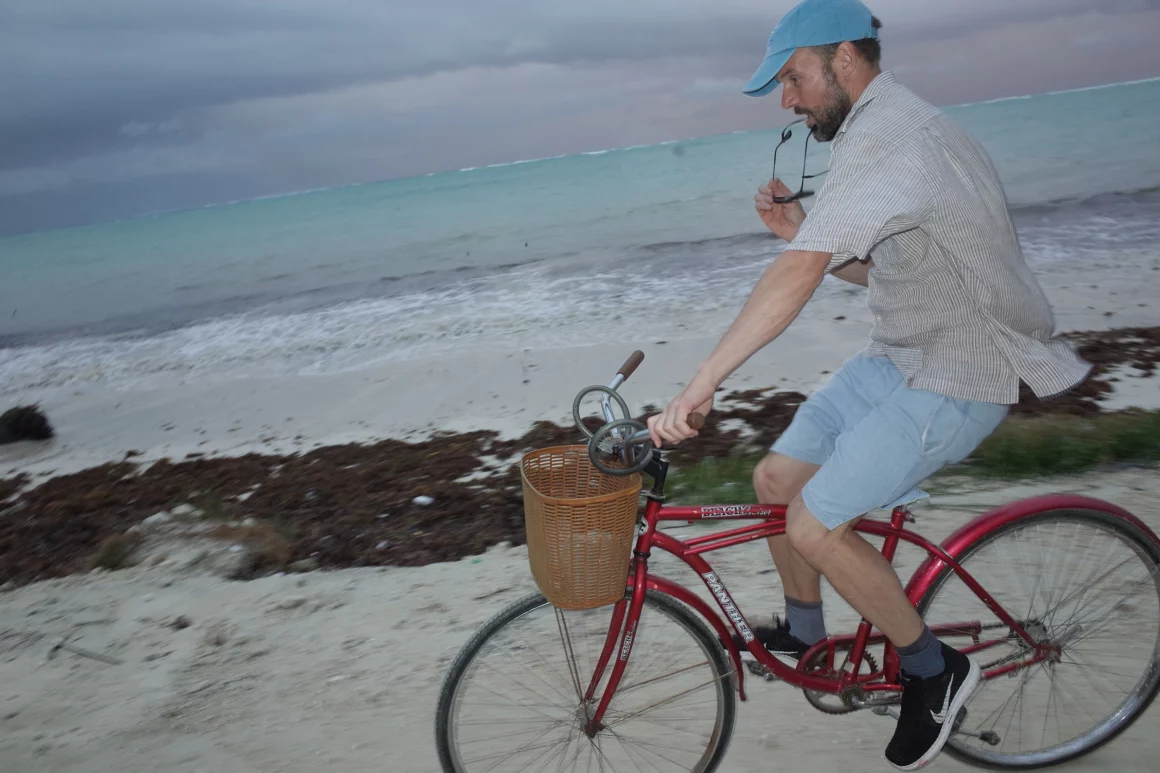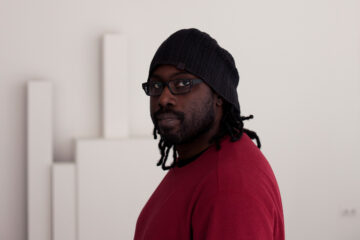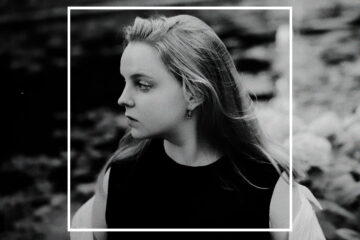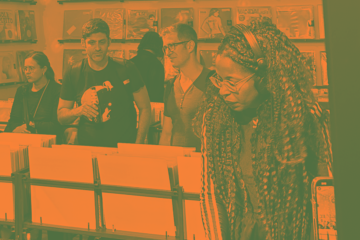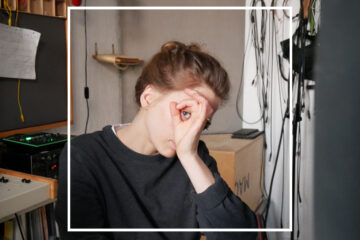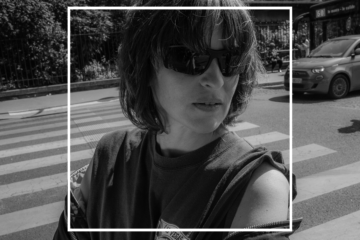If you look back to the days of the big Berlin Love Parade, techno and house were like a huge carnival that had already begun to consume itself by 1995. Great albums were released, classics of the techno, house, IDM and breakbeat genres. But the decadence that was evident in the chart positions of the likes of Scooter, Westbam, Members of Mayday or Da Hool was there for all to see.
It is possible that this sentiment gave rise to what we now call microhouse or simply minimalism: The genre that would later produce its own crop of stars like Ricardo Villalobos. At the time, it was all kicked off by the likes of Isolée. The Frankfurt musician, whose real name is Rajko Müller, was one of the first to perfect this style, which was not as intricate as the experiments by Autechre, Aphex Twin and their IDM consorts, but did bring with it a certain degree of complexity: Suddenly, microsamples (hence the name) were being spliced together into abstract dance tracks, loosely reminiscent of Chicago and New York house, but sounding cooler, more fragile, more elegant throughout.
»Beau Mot Plage« by Isolée became the first hit in this young genre that swept through Europe like wildfire. Isolée then worked on his début album (»Rest,« 2000), which was boosted by the hit, and then on »We Are Monster,« which, like its predecessor, was released on Playhouse. Here Isolée delved into the realms of pop; after a six-year hiatus, »Well Spent Youth« followed on Pampa. After a few singles in the meantime, his fourth album »Resort Island« was released in mid-2023 on the label of the same name, which Rajko Müller now runs himself.
In keeping with the hour and the freaks around us, I start the interview with a rather casual question: Which three records would you take to a desert island?
Isolée: : I struggle to answer that question as it’s not my type of thing. I have the same problem with top 10 lists and such. Because I’m not a DJ, I don’t have a huge repertoire of the latest records to call on. So it pains me to say anything at all.
I think it’s clear what my question is alluding to: Your pseudonym is Isolée, your label is called Resort Island and even I always imagined the »Beau Mot Plage« of the eponymous track as being a deserted stretch of beach. Most of the time you seem to be talking about tiny ›desert islands‹: where does this penchant for escape from society and from people come from?
If I only knew… To be honest, I don’t even know if I want to celebrate such an »escape from society«. Of course, I agree that there are times when you need to get away from it all – but not all the time. All these references in my work and my oeuvre don’t describe an ideal state, therefore, but rather a temporary sift towards…
…fortresses of solitude?
Yeah, something like that. Anyway, you’re not alone on a resort island like Robinson Crusoe was on Treasure Island. Ideally, you are there with like-minded people, so you aren’t really lonely or isolated, like you say. Music is also a window to the outside world & society, if only because when you immerse yourself in music created by someone else and listened to by others, that in itself creates a common ground. And something else it’s important not to forget: The great thing about music is that you can keep things vague, you don’t have to sell any rock-solid philosophical world views. In music you can be »lonely« for a while, even if you’re otherwise not.
Your new label, just like the long-awaited LP, are both called »Resort Island« Yet a holiday resort is probably one of the most depressing places imaginable, isn’t it? David Foster Wallace has written extensively about the grinding nature of the cruise journey, in other words, a resort on water. So is the name more of a joke or is there a deeper truth to it?
First of all, I have a rather superficial aesthetic approach, especially to names. I focus on the sound, but I also like it when the meaning is fragile, when you suddenly find yourself in liminal spaces. »Resort Island« has this interplay between the slick, glossy aesthetics of holiday resorts, which can be very interesting on a superficial level, and the feeling that you wouldn’t want to spend any time there yourself. At the same time, we’re probably always looking for places to escape to and when you feel like everything around you is falling apart, that’s when Resort Island becomes something of a yearning. At least a musical one. But then the whole thing always turns out to be an illusion So there’s a lot of twists and turns that come together. That’s what made it so interesting for me.
The complexity is in you: Today you are no longer purely a musician, but also a label owner. So how did that come about?
It never wanted to have my own label. I always liked the idea of a label that you just appear on because others decide. Your own music is subject to quality control and there’s also the aspect of »developing something together«.
And then, after all these years, your indie past came out and you wanted to get down to some DIY again?
Nah, not at all. I’m not a self-starter, not a doer, not an entrepreneur. I’m a musician, maybe even a nerd.
»In music you can be »lonely« for a while, even if you’re otherwise not.«
Isoleé
Oh. Everyone always thinks that in the 90s people wanted to do everything themselves.
But the opposite is true, I was constantly glad that everyone was doing something. The involvement with Playhouse, with someone like Ata as label owner, just kind of landed in my lap. I’ve never bothered with anything like »label work«. When the Playhouse thing was over, I was left without a label for quite a while. Then Stefan (author’s note: Kozalla aka DJ Koze) came along with his label Pampa. We got together for a while and then kind of drifted apart again. And since then I was like what you might call homeless.
And how does it feel to have your own label for the first time?
I got cold feet at first, but now it’s turning out to be quite a good experience.
I found it interesting that all the coverage of the record emphasised that you had taken such a long break, which is not really true. It’s been twelve years since your last album »Well Spent Youth«, but in the meantime you’ve released a total of eight EPs and singles on Pampa, Maeve, Mule and other labels. Only during the COVID crisis did things really get quiet around you. There was this kind of dance floor depression because nobody knew who to make dance music for anymore – was that something that worried you?
I could relate to the prevailing feeling of apathy. I saw things in a similar way. But then again, you could read in a lot of places that everyone had more time on their hand and would dare to do more musically and make up for what they couldn’t do before. Things were completely different for me. I had no influences, no feedback, no input – and isn’t club music a genre based on exchange? I used the time to chill and to think about anything but music.
The opening of the MOMEM, the techno museum in Frankfurt, coincided with the outbreak of the pandemic, where your track »Beau Mot Plage« is also listed and honoured as an »essential house record«. You know how it is with bands: they hate the old stuff and really don’t want to play it anymore. Tell us about the relationship between the producer Isolée and his old hit.
I have never hated the piece and certainly not now, 25 years later. Occasionally, I got requests for remixes, asking if I could do something like »Beau Mot Plage«, which I found a bit boring after a while. Playing the track live was always a thing, by the way: I’d recorded everything on DAT back then, not in a DAW like all the tracks today. That meant I had to rebuild it and I was never really happy with the result. But I now have a version that I like. In fact, I actually look forward to playing it. I’d even go so far as to say that I’m proud of it – and definitely proud of the award!
Related reviews
You were just talking about playing live. You’ve been playing a lot more this year because of the record. Do you find it interesting that dance floors are now closer than ever to the time when »Beau Mot Plage« was written in 1997? The trance and Eurotrash revival sets seem to be everywhere after all.
I first caught wind of the whole thing relatively late in the day. Especially last year and at the beginning of the year I was playing in settings where the revival wasn’t quite so obvious. At the time »Resort Island« was released, a number of people expressed their delight that such an album was finally being released again. And at first I didn’t really know what were talking about. Then it slowly dawned on me: Suddenly there was music being played that I hadn’t expected, and that I didn’t even like in the nineties.
And what do you think about the whole thing?
I was pretty gobsmacked. Everywhere you go, people are playing what feels like 150 BPM, or whole sets with nothing but nineties references, which can make the whole thing sound a bit gimmicky. I find sets that just follow the zeitgeist or reflect a certain trend quickly boring. But I find the tempo and high energy level of the music exciting, even if it seems to leave less room for musical content in the music. In return, the abstraction level is higher, which is something I like a lot in techno anyway. At the same time, I sometimes felt a bit out of place with my set in a line-up like that, but that’s my subjective feeling, which doesn’t have to agree with the audience’s.
Are you still interested in the dance floor now that you’re almost in your fifties?
I gave more thought to the dance floor on the new LP than probably ever before in my life. That’s my stage, that’s where I play live. What would be the point of »freestyling« and producing explicitly anti-dance floor tracks? No, seriously: the bass drum was one of the key aspects for me this time and I worked on it explicitly. Bass drums can be used as a Trojan horse for the dance floor.

